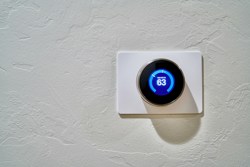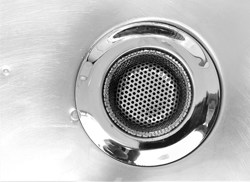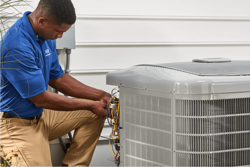New Year, New Home: New HVAC Trends to Know About in 2026
January 13, 2026
A new year always brings a fresh start — and with it, new ideas, innovations, and trends designed to make our lives easier and more comfortable. As 2026 begins, technology is evolving at an unprecedented rate, and the HVAC industry is no exception. Today's…
How to Prevent Clogged Drains in Every Room of Your Home
December 04, 2025
Ever notice how drains slow down right when you're hosting guests or cooking a big meal? It's no coincidence — the holidays are prime time for clogged drains. From kitchen grease to shower hair, every room in your home faces its own drain challenges. The g…
It’s ARS Cares Time: Nominate a Community Hero Today!
September 03, 2025
ARS (American Residential Services) is once again pleased to promote ARS Cares, a program dedicated to celebrating everyday heroes in our communities. If someone in your neighborhood consistently goes above and beyond to help others, now is the time to hon…
How to Troubleshoot an HVAC System: A Guide for Homeowners
August 13, 2025
When your home's heating or cooling system isn't working or performing as expected, knowing how to troubleshoot your HVAC system can save you time, money, and frustration. This residential HVAC troubleshooting guide outlines the key steps to take to identi…
The Ultimate HVAC Guide for Homeowners
July 01, 2025
What is the difference between a house and a home? We all know a house provides shelter, but a home is the smell of cookies coming out of the oven and laughter around the dining room table over a board game. A home is the personalities, sights, and sounds…
7 Home Safety Tips for National Barbecue Month
May 06, 2025
Are you excited to flip some burgers, grill some wings, and crank up the tunes? We certainly are! We love the month of May because it’s the start of grilling season for many areas of the country—which is why May is appropriately called National Barbecue Mo…
10 Experts Tips for Adding Comfort to Your Home This Spring
April 01, 2025
Homeowners hunting for ways to improve their indoor comfort this spring are in for a real treat. Like finding hidden Easter eggs, we've gathered some springtime surprises to help refresh your home and boost your HVAC system's efficiency. We’ve even include…
Don’t Forget These Important Calendar Dates in March
March 05, 2025
Attention, homeowners! March is busy, especially when celebrating special events for the next 31 days. But don’t fret; the team at ARS/Rescue Rooter is here to keep you organized. While you know March is the perfect time to schedule your annual HVAC tune-u…
Enjoy Presidential Comfort This Month!
February 03, 2025
Happy Presidents’ Day! This month, we pay tribute to our Founding Fathers and reflect on the freedoms their leadership made possible. Our presidents played a significant role in defining America. From molding the U.S. Constitution to fighting for patriotis…
What Temperature Should I Set My Water Heater?
December 17, 2024
With California experiencing hot weather throughout the year, keeping your home cool can be quite costly. Still, the actual costs can vary depending on how efficient your air conditioner is and its size. With this in mind, here is everything you need to kn…









